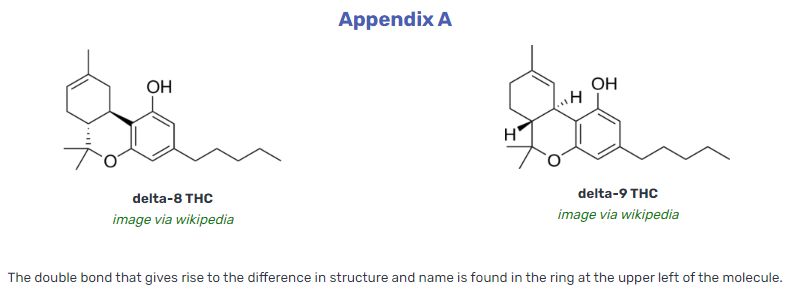In 1965, Bob Dylan sang in Subterranean Homesick Blues that “you don’t need a weatherman to know which way the wind blows.” Thanks to a May 19 decision from the Ninth Circuit, we do not need a weatherman when it comes to the status of trademark and other federal protections for the cannabis industry, especially for hemp-derived products, because we can smell the gusts from the future.
On Thursday, May 19, 2022, the Ninth Circuit
ruled that products that contain the hemp-derived cannabinoid known as delta-8 THC are completely legal under the 2018 Farm Bill, and are also entitled to legal protections under federal law, including copyright and trademark protection.
This decision both provides clarity to hemp-industry members and empowers individuals and companies interested in exploring the innovation and business opportunities surrounding hemp derivatives, including the hundreds of cannabinoids contained within the cannabis plant (of which delta-8 THC is only one).
The AK Futures Decision
The Ninth Circuit arrived at this decision while reviewing a lawsuit filed by AK Futures, a vape manufacturer, which sought to prohibit another manufacturer (Boyd Street Distro) from selling allegedly counterfeit versions of AK’s delta-8 THC cartridges. Boyd Street Distro defended, in part, arguing that they were free to copy AK’s vape cartridges because delta-8 THC is illegal under federal law, and thus AK did not have a valid protectable interest in its intellectual property (IP).
The Court rejected this defense, finding that delta-8 THC – a naturally occurring, but easily synthesized, cannabinoid – was deemed federally legal (and, importantly,
not a Schedule I substance under the FDA, like delta-9 THC is) under the 2018 Agricultural Improvement Act (the Farm Bill) passed by Congress. This is because the Farm Bill protects the “derivatives” of the hemp plant. (Hemp is defined as cannabis containing 0.3% or less delta-9 THC on a dry weight basis; Marijuana is defined as cannabis containing more than 0.3% delta-9 THC on a dry weight basis). The Ninth Circuit concluded that the Plaintiff was entitled to protection for its one registered copyright and six unregistered trademarks.
Delta-8 THC just is one of hundreds of hemp derivatives. Declining to categorize delta-8 THC as a prohibited derivative of the cannabis plant (since Congress has carved out no exceptions to the definition of delta-9 THC as the prohibited substance), the Court made clear its intent to leave such matters in the hands of Congress:
“If Boyd Street is correct, and Congress inadvertently created a loophole legalizing vaping products containing delta-8 THC, then it is for Congress to fix its mistake.”
The Winds of Change
Although the AK Futures decision was decided under the preliminary injunction standards, which require less proof than an entire trial on the merits, it nonetheless carries two major implications. First, cannabis-related businesses and products are fully in the mainstream of American commerce. Moreover, Courts will not withhold legal protections that exist for other companies simply because the business touches or involves the hemp plant, or any of its derivatives – even the highly controversial delta-8 THC cannabinoid, which has an almost identical chemical structure (see appendix A) and produces a similar experience to the well-known delta-9 THC.
More immediately, the opinion means that delta-8 THC products, suppliers, and businesses are entitled to many of the same protections that more “traditional” products and enterprises enjoy, especially in terms of IP protection.
The repercussions of AK Futures will not be limited to the intellectual property realm, as the holding clearly suggests that other commercial activity involving hemp derivatives is not only permissible, but that the interests of these companies will be afforded full and complete legal protection under the law. This consequence will, in one form or another, trickle down to allow such businesses to open deposit accounts with financial institutions, get commercial loans, pledge their intellectual property as collateral for those loans, use credit card networks with more ease, market their products in mass media, acquire better insurance coverage, and avail themselves of bankruptcy protections, just like all other businesses that grow, make, transport or sell consumer goods.
 The content of this article is intended to provide a general guide to the subject matter. Specialist advice should be sought about your specific circumstances.
The content of this article is intended to provide a general guide to the subject matter. Specialist advice should be sought about your specific circumstances.
 The content of this article is intended to provide a general guide to the subject matter. Specialist advice should be sought about your specific circumstances.
The content of this article is intended to provide a general guide to the subject matter. Specialist advice should be sought about your specific circumstances.



